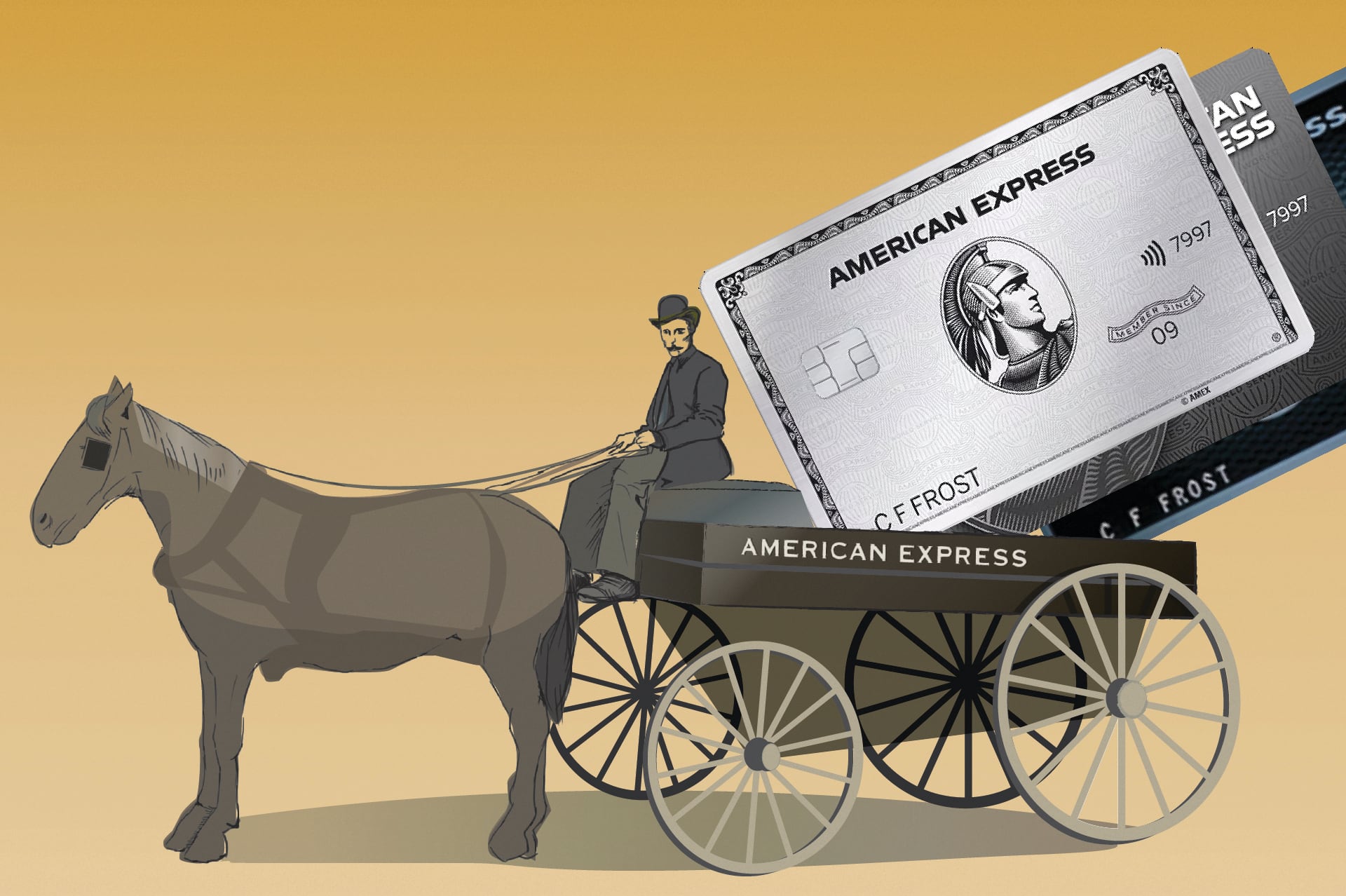NEW YORK (AP) — Ira Galtman is part of a small community of corporate archivists. They are historians, cataloguers and documentarians for large companies. They keep track of how companies change their products over time, while also looking for ways for the company to harken back to its history.
For nearly three decades, Galtman’s job has been to document how American Express went from a packing, shipping and express stagecoach company in New York in 1850, to the inventor of the traveler’s cheque in the 1890s to the credit card company it is today. He’s also popular on TikTok, where cardmembers ask him regularly for AmEx trivia.
The interview has been edited for length and clarity.
Q: How did you start in this role?
A: I loved history from a very early age. I majored in history in college, went to grad school at NYU to initially get a PhD in history, and I pivoted while I was in grad school. I decided to not go through an academic route, but to go into the archive world. And I was fortunate enough that at NYU there was an archival management program. So I was able to get a certificate in that as part of my graduate work.
I’ve now been with American Express for over 28 years. Had the opportunity to start in the late 90s, so it was a time of transition. I serve as both the company’s archivist as well as historian. And so each of those roles are slightly different, but they definitely complement one another.
Q: What’s been one interesting project you’ve worked on?
A: We did a project showing American Express’s role in the Civil War, which was really interesting. We were shipping materials to Union soldiers in the field and being able to support the U.S. government. We also shipped election ballots for the 1864 election.
But during Covid, we did work to see how the company fared during other crises to help inspire colleagues. For example, there was a pandemic in 1918. But there have been other times when the company has had to deal with a variety of crises, whether it was wars or recessions. Bringing those areas to life, I think, was something that really inspired folks.
Q: Where do you get most of your materials from?
A: I’m fortunate that there are avid pony express business collectors, and a bunch of them will reach out to me directly and offer stuff to me. I get a lot of free things, but I’ve also bought multiple items from the same person.
I’d love to find an American Express wagon. That is probably the holy grail for our express archives.
Q: What’s worth keeping and what do you discard?
A: The reality is archivists keep a very small amount of material, because what is generated in a typical year is just too much. And you have to have a documentation strategy and be able to know what’s important to keep, and what is able to connect the dots.
The single most important thing I do for Amex, in terms of why the history is important, is being able to show that there have been precursors for a business. We started with the money order in the 1880s which became the traveler’s check. Our Centurion Lounges harken back to when we had lounges in Europe for customers who needed to ship things overseas.
Q: So, who is CF Frost? He’s the name on all your ads.
It stands for Charles F. Frost. He was an account executive at Ogilvy & Mather, an advertising agency that American Express had used going back to the mid 1960s. Frost was working on the American Express account, and he needed to use a sample name. So, in the past we had used John Smith, for example, which is kind of typical. We reached an agreement with him where we would use his name on sample cards in our advertisements.
His name changed on the card to CF Frost in 1977. We were looking for something more gender neutral on the cards and in the early-to-mid 1970s we began to offer the card to more women to diversify our customer base.









